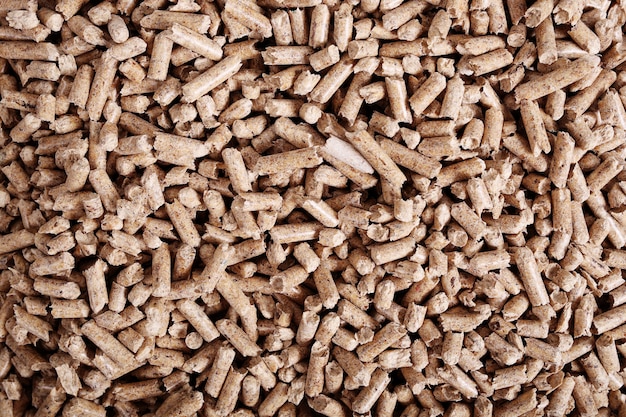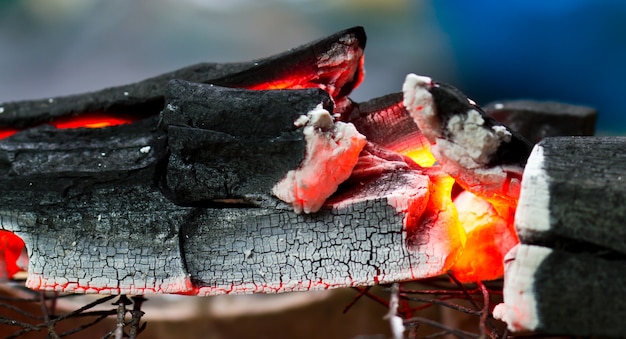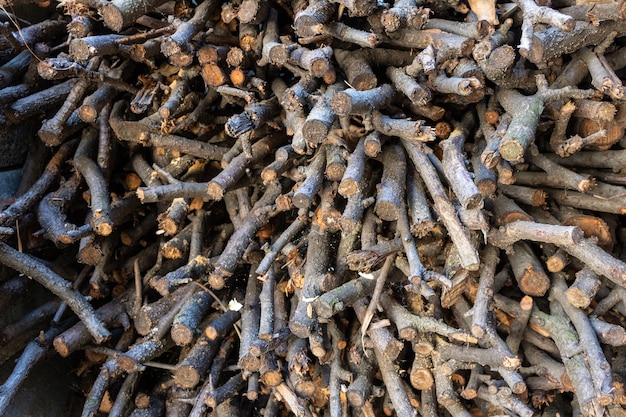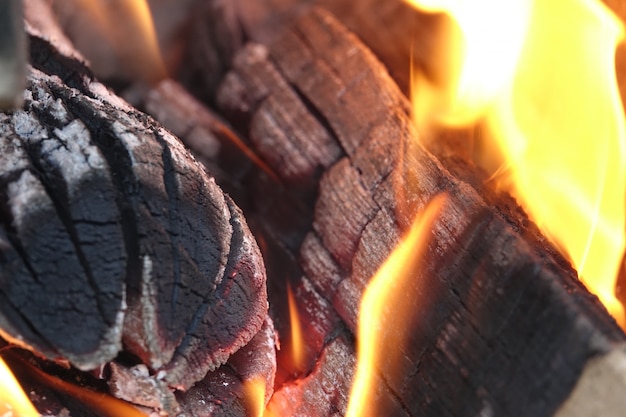What is the best fuel for a gas BBQ?
A gas BBQ is a great way to enjoy outdoor cooking, providing convenience and control over the cooking temperature. However, choosing the right fuel for your gas BBQ can significantly impact the taste and quality of your food. In this article, we will explore the different fuel options available for gas BBQs and help you determine the best choice for your grilling needs.
Gas Options
When it comes to gas BBQs, the two main types of fuel options are propane and natural gas.
Propane
Propane is a popular choice for gas BBQs due to its portability and widespread availability. It is typically stored in refillable metal cylinders, making it convenient for outdoor use. Propane provides consistent heat and allows for easy temperature control, making it suitable for various cooking techniques. Additionally, propane tanks can be easily replaced or refilled when empty.
Natural Gas
If you have a natural gas supply at your home, using natural gas as fuel for your BBQ can be a convenient option. Natural gas offers a continuous supply of fuel, eliminating the need for tank replacements or refills. It is commonly connected directly to your gas line, ensuring uninterrupted grilling sessions. However, it’s important to note that converting a gas BBQ to natural gas may require professional installation.
Charcoal Options
While gas BBQs are known for their convenience, some people prefer the traditional taste and smoky flavor that charcoal can bring to their grilled dishes. Although charcoal grilling requires more preparation and time, it can result in a unique flavor profile that many BBQ enthusiasts love.
Charcoal Briquettes
Charcoal briquettes are one of the most common types of charcoal used for grilling. They are made from compressed wood, coal dust, and other additives. Charcoal briquettes are known for their long burn time and consistent heat output, making them suitable for slow cooking or smoking techniques.
Hardwood Lump Charcoal
Hardwood lump charcoal is another popular choice for charcoal BBQs. It is made from natural hardwood, typically without any additives or binders. Hardwood lump charcoal burns hotter and faster than charcoal briquettes, which makes it ideal for high-temperature searing or quick grilling sessions. Additionally, hardwood lump charcoal tends to produce less ash and imparts a distinct smoky flavor to the food.
Comparison
Here’s a comparison table summarizing the main characteristics of the different fuel options:
| Fuel Type | Convenience | Temperature Control | Flavor |
|---|---|---|---|
| Propane | High | Excellent | Mild |
| Natural Gas | Very High | Excellent | Mild |
| Charcoal Briquettes | Moderate | Good | Strong |
| Hardwood Lump Charcoal | Moderate | Fair | Intense |
What is a good charcoal substitute for BBQ?
When it comes to barbecuing, charcoal is often the go-to fuel for grilling enthusiasts. However, there are times when you may not have access to charcoal or prefer to use an alternative fuel source. Whether you’re looking for convenience, health reasons, or simply experimenting with new flavors, there are several substitutes that can be used to achieve that perfect smoky flavor. Let’s explore some of the top charcoal substitutes for BBQ in the UK.
1. Propane Gas
One popular alternative to charcoal is propane gas, which offers convenience and quick heating. Gas grills are easy to start, maintain a consistent temperature, and allow for precise control over the heat. Although propane doesn’t provide the same smoky flavor as charcoal, you can enhance the taste by using wood chips or chunks in a smoker box.
2. Wood Pellets
Wood pellets are a fantastic option for those who want a natural and flavorful substitute for charcoal. Made from compressed sawdust, these pellets come in various flavors such as hickory, mesquite, and applewood. They can be used in pellet grills or smokers to infuse your food with a delicious smoky taste.
3. Electric Grills
If you live in a place where open flames are prohibited or prefer a hassle-free grilling experience, electric grills are a suitable alternative. These grills are easy to use, require minimal cleanup, and allow for indoor grilling. While they don’t provide the traditional smoky flavor, you can still achieve tasty results by using wood chips or marinades.
4. Lumpwood Charcoal
For those who still want to stick with charcoal but prefer a more sustainable and eco-friendly option, lumpwood charcoal is an excellent choice. Made from natural hardwood, this type of charcoal burns hotter and cleaner than traditional briquettes. It also lacks the chemical additives found in some charcoal products, which can adversely affect the taste of your food.
Tip: No matter which substitute you choose, ensuring you have the right grilling techniques and seasonings will help you achieve mouth-watering results.
In conclusion, while charcoal remains the classic choice for barbecuing, there are several charcoal substitutes available that can provide delicious flavors and convenience. From propane gas and wood pellets to electric grills and lumpwood charcoal, each option has its advantages. Consider your preferences, needs, and local regulations to determine the best alternative for your next BBQ adventure!
Can you mix charcoal and wood?
When it comes to barbecuing, using different types of fuel can enhance the flavor of your food. But can you mix charcoal and wood? Let’s explore this topic in detail.
Understanding the Difference Between Charcoal and Wood
Charcoal is made by burning wood in a low-oxygen environment. This process removes moisture and other impurities, leaving behind carbon-rich charcoal briquettes. On the other hand, wood provides a natural and smoky flavor to the food.
The Benefits of Mixing Charcoal and Wood
Mixing charcoal and wood in your grill or smoker can give you the best of both worlds. Charcoal provides a consistent heat source and longer burn time, while wood adds that unique smoky flavor. It allows you to control the intensity of the smokiness, making your barbecue more versatile.
How to Mix Charcoal and Wood
- Start by lighting the charcoal and wait until it turns ashy white.
- Add chunks or chips of your desired wood on top of the burning charcoal.
- Arrange the charcoal and wood in a way that ensures good airflow for an even burn.
- Place your food on the grill and cook as usual, adjusting the vents to regulate temperature.
Note: It’s important to use hardwoods like oak, hickory, or fruitwoods for smoking, as they provide the best flavors.
“Mixing charcoal and wood can take your barbecue to the next level by adding a deep smoky taste to your food.” – BBQ enthusiast
Experimenting with Charcoal and Wood Combinations
If you’re feeling adventurous, you can experiment with different combinations of charcoal and wood to create unique flavors. For example, mixing mesquite wood with charcoal can give your food a strong and distinctive taste, while incorporating applewood can provide a sweeter and milder smokiness.
Can you use briquettes on a gas BBQ?
When it comes to barbecuing, there’s often a debate about whether to use charcoal or gas. While gas grills offer convenience and easy temperature control, many people still prefer the traditional smoky flavor that comes from cooking with charcoal. But what if you have a gas BBQ and want to achieve that charcoal taste? Can you use briquettes on a gas BBQ? Let’s find out!
What are briquettes?
Briquettes are compressed blocks of charcoal, commonly used for cooking in both charcoal grills and smokers. They are made from a mixture of charcoal dust, wood chips, and a binding agent. The binding agent helps the briquette hold its shape and burn evenly.
Using briquettes on a gas BBQ
Yes, you can use briquettes on a gas BBQ! It’s a technique known as “hybrid grilling” or “gas-grilling with charcoal flavor.” By placing a layer of briquettes on top of your gas grill’s heat shields or lava rocks, you can achieve the smoky taste similar to cooking with charcoal.
To use briquettes on a gas BBQ:
- Clean your gas BBQ thoroughly and remove any excess grease.
- Place the briquettes on the heat shields or lava rocks of your gas grill.
- Light the briquettes using a chimney starter or lighter fluid.
- Allow the briquettes to burn until they turn ashy grey, indicating they are ready for cooking.
- Place your food directly on the cooking grates above the briquettes and cook as usual.
Benefits of using briquettes on a gas BBQ
Using briquettes on a gas BBQ offers several benefits:
- Enhanced flavor: The combination of gas and briquettes gives your food a smoky taste that is closer to charcoal grilling.
- Temperature control: Gas grills provide precise temperature control, and adding briquettes allows you to adjust the heat according to your cooking preferences.
- Saves time: Briquettes ignite quickly, allowing you to start grilling faster than waiting for charcoal to light up.
“Using briquettes on a gas BBQ allows you to enjoy the best of both worlds – the convenience of a gas grill with the flavor of charcoal cooking.”
So, if you own a gas BBQ but crave that delicious smoky flavor, don’t hesitate to try using briquettes. It’s a simple technique that can elevate your grilling experience and impress your family and friends with mouth-watering barbecue dishes!
What is better than wood chips?
When it comes to landscaping and gardening, wood chips have long been a popular choice for mulch. However, there are alternative options that can offer even more benefits for your outdoor spaces. Let’s explore some of the alternatives that are better than wood chips:
Rubber Mulch:
If you’re looking for a long-lasting and low-maintenance option, rubber mulch is a great alternative to wood chips. Made from recycled tires, it provides excellent insulation, retains moisture, and helps suppress weed growth. Additionally, rubber mulch does not attract pests or decompose, making it perfect for areas where children play.
Straw Mulch:
In agricultural settings, straw mulch has proven to be an effective choice. It acts as an insulator, protecting plants from extreme temperatures, while also retaining moisture in the soil. Straw mulch is commonly used in vegetable gardens and can help suppress weed growth.
Gravel:
For a more decorative option, gravel can be an excellent choice. It adds texture and visual interest to your garden, while also providing effective weed control. Gravel also allows for better drainage compared to wood chips and can be particularly suitable for areas with heavy foot traffic, such as pathways or driveways.
Benefits of these alternatives:
- Low maintenance: Unlike wood chips, these alternatives require minimal upkeep, saving you time and effort.
- Longevity: Rubber mulch and gravel are both durable and can last for several years without needing replacement.
- Water retention: Straw mulch and rubber mulch help retain moisture in the soil, reducing the need for frequent watering.
- Weed suppression: All of these alternatives aid in suppressing weed growth, keeping your garden beds tidy and reducing the need for constant weeding.
In summary, while wood chips have been a popular choice for mulch, there are several alternatives available that offer unique advantages. Whether you prefer the low maintenance of rubber mulch, the insulation properties of straw, or the decorative appeal of gravel, there is an option to suit every garden. Consider these alternatives for a more sustainable and aesthetically pleasing outdoor space.
Is it Safe to Use Wood as a Fuel? Why?
Wood has been used as a source of fuel for centuries, but is it safe to rely on wood as a fuel source in modern times? Let’s examine the safety aspects of using wood as a fuel and why it can be a viable option.
Renewable and Environmentally Friendly
One of the main reasons why wood can be considered safe as a fuel source is its renewable nature. Unlike fossil fuels such as coal or oil, which are finite resources, wood can be sustainably harvested from properly managed forests. This reduces our dependence on non-renewable resources and helps protect the environment.
“Using sustainably sourced wood as a fuel can significantly reduce carbon emissions,” says environmental expert Emma Green. “When compared to fossil fuels, burning wood produces less greenhouse gases and helps combat climate change.”
Efficient and Cost-Effective
Wood can also be a cost-effective fuel option, especially for households with access to a local supply. In rural areas, where alternative fuel options may be limited, using wood as a fuel can be a cheaper alternative to other sources such as gas or electricity.
“Wood-burning stoves and boilers have become more efficient over the years,” explains John Smith, a heating engineer. “Modern wood-burning appliances are designed to maximize heat output while minimizing emissions, making them safer and more efficient than older models.”
Safety Measures to Consider
While wood can be a safe fuel choice, it is important to take certain precautions. Here are some safety measures to consider when using wood as a fuel:
- Clean and maintain your chimney regularly to prevent the build-up of creosote, which can cause chimney fires.
- Use properly seasoned wood to ensure efficient burning and minimize the release of harmful pollutants.
- Install carbon monoxide detectors near wood-burning appliances to detect any potential leaks.
- Follow manufacturer instructions when using wood-burning stoves or appliances to maximize safety.
In conclusion, using wood as a fuel can be safe and environmentally friendly, as long as proper precautions are taken. Sustainably sourced wood can help reduce carbon emissions and combat climate change. With modern wood-burning appliances, efficiency has improved while emissions have decreased. By following safety measures, households can enjoy the benefits of wood as a fuel source while minimizing risks.
Conclusion
In conclusion, mixing charcoal and wood can enhance the flavor of your barbecued food by adding a delightful smoky taste. Just make sure to choose the right type of wood for smoking and arrange the fuel properly for optimal results. So go ahead, mix up your fuels and enjoy the mouthwatering results!



